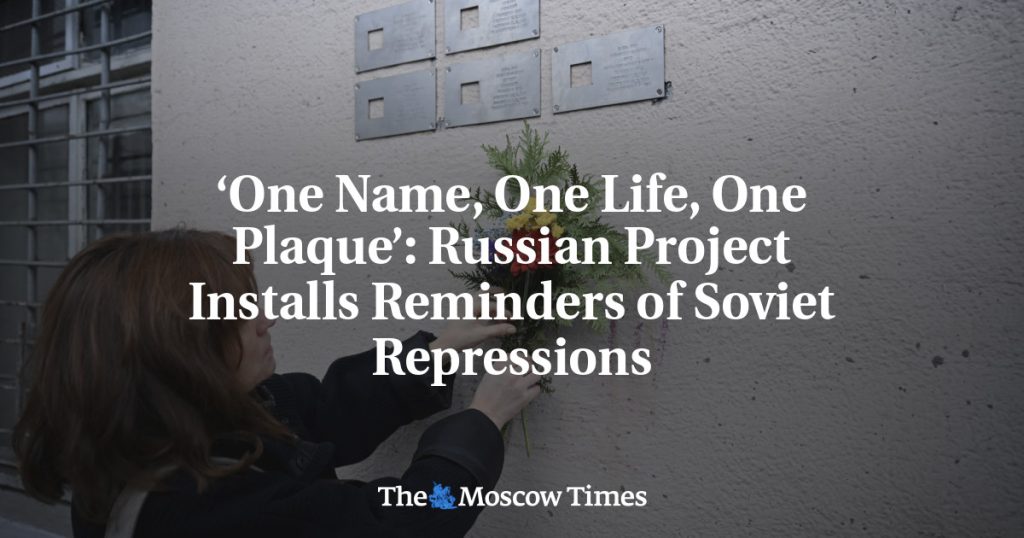Sergei Tyutryumov was executed in 1938 at the age of 33 after being accused of “counter-revolutionary” activities and “anti-Soviet agitation.” He was a history teacher living in Tomsk with his wife and two daughters before his arrest. Tyutryumov was fully rehabilitated in the 1950s, and his family had no knowledge of his fate until many years later. In a small ceremony, a memorial plaque was unveiled in his honor in Tomsk by his granddaughter Elena Shatunova. The Last Address project, founded by journalist Sergey Parkhomenko, works to honor victims of Soviet repression and has installed plaques for over 2,500 individuals across Russian cities.
The Last Address project aims to commemorate victims of Soviet political terror, specifically those who were executed or died in the Gulag prison camp system. Critics accuse present-day Russian authorities of downplaying Soviet repressions, which saw widespread persecution, forced labor camps, and political purges. The work of Last Address comes at a critical time when the history of Soviet repressions is being revisited. The project installs plaques on buildings where victims last lived, providing details such as their names, professions, birth dates, and the dates of their arrest, execution, or death in the Gulag.
Inspired by the Stolpersteine initiative in Europe, which memorializes Holocaust victims, Last Address seeks to give recognition to the millions who suffered under Soviet repression. Despite facing challenges such as resistance from building management and the removal of plaques by authorities, the project remains a crucial civil initiative in Russia. Last Address aims to bring awareness to the historical period of Soviet repressions, emphasizing the value of human life and the importance of acknowledging past injustices.
The Last Address project is a means for families and friends of the repressed to commemorate their loved ones, providing a way to honor their memory. For individuals like Tyutryumov’s daughter, Tatiana Tyutryumova, who spent years searching for information about her father, the installation of a plaque can bring closure and recognition. The project collaborates with activists, relatives, and historians to ensure that the stories of the victims are not forgotten, shedding light on a dark period in Russian history.
As Russia continues to grapple with issues of political repression and censorship, the Last Address project serves as a reminder of the importance of acknowledging past atrocities. Despite facing restrictions and challenges, the project remains committed to preserving the memory of those who suffered under Soviet rule. By highlighting the stories of individuals like Tyutryumov, Last Address aims to provide a voice for the victims of repression and to ensure that their experiences are not erased from history.
In a time when independent voices are being silenced and human rights organizations are facing closure, initiatives like Last Address provide a platform for remembrance and reflection. By honoring the lives of those who were unjustly persecuted, the project challenges the narrative of the state and emphasizes the irreplaceable value of every life lost. Through its work, Last Address seeks to promote dialogue, justice, and accountability for the injustices of the past, ensuring that the legacy of the victims of Soviet repression lives on.


